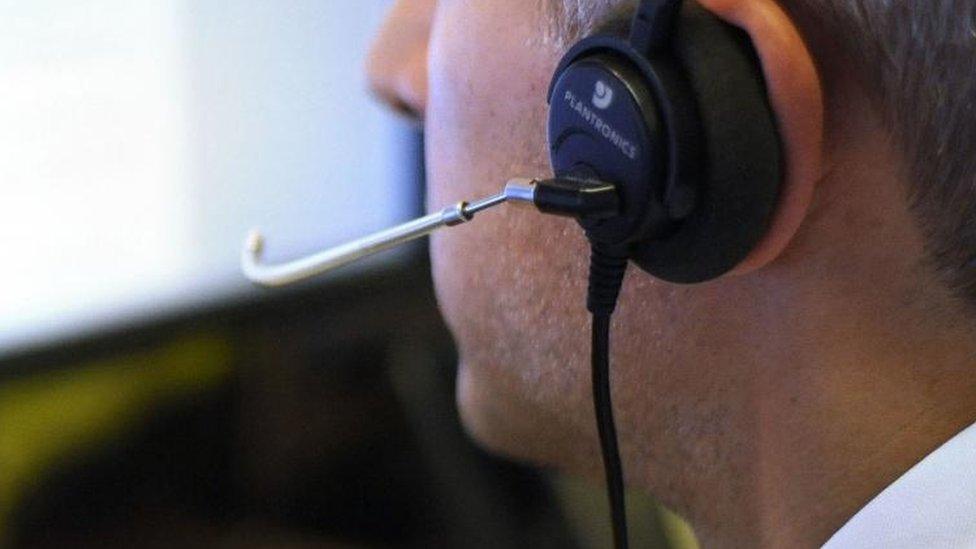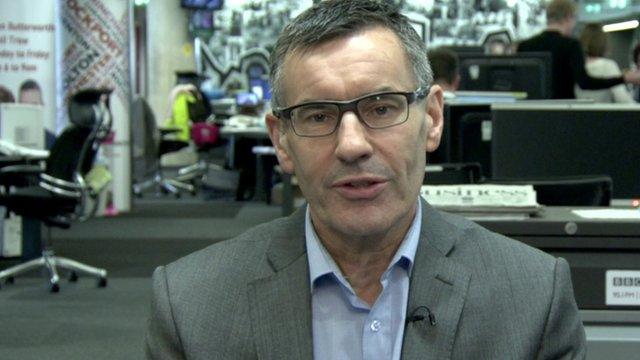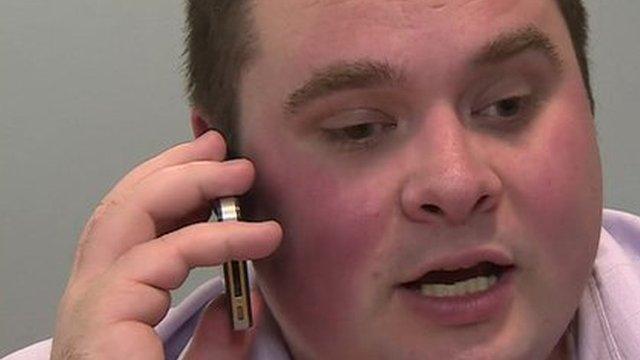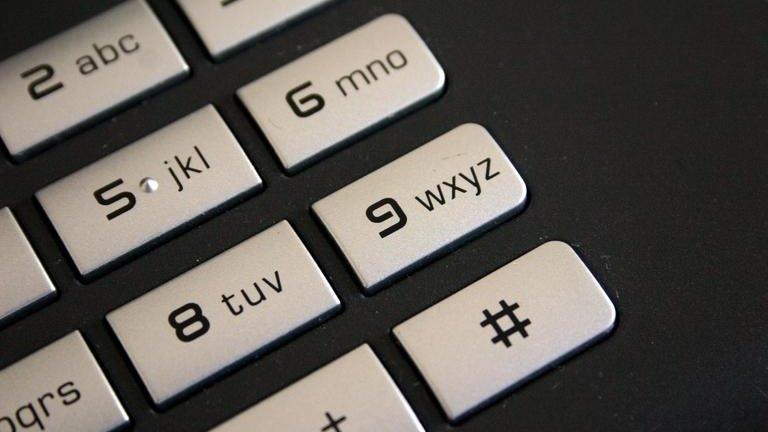Record fine for nuisance calls firm
- Published

A firm has been handed a record fine for nuisance calls after making more than six million automated calls in a solar panel marketing campaign.
Glasgow-based Home Energy & Lifestyle Management Ltd has been fined £200,000 by the Information Commissioner.
Complainants described being powerless against calls or finding that calls were filling up answer machines.
The company blamed another firm it hired to make calls and said it was appealing against the ruling.
Cold call regulator Simon Entwistle said the fine was justified
The Information Commissioner's Office (ICO) said that the company conducted a massive automated call marketing campaign offering "free" solar panels.
One complainant told the ICO that they had been waiting for news of a terminally ill family member and could not ignore the phone.
"The bottom line is companies trying to sell a product have got to stick to the rules. Nuisance phone calls are a modern pest," said the Information Commissioner Christopher Graham.
"People expect the Information Commissioner and other agencies to close this down and we're now closing down on these phone pests."
Lee Beaumont makes money from companies who cold call him
'Ignorance of the law'
The ICO said an organisation should have people's permission, which specifically names the company concerned, in order to make automated calls, but the company admitted it did not know what the rules, external were.
To give that permission, consumers have to tick a box saying they are interested in a particular product from a particular company.
"This company's ignorance of the law is beyond belief. It did not even bother to find out what the rules were and its badly thought out marketing campaign made people's lives a misery," said Steve Eckersley, head of enforcement at the ICO.
The firm is also obliged to provide a means for consumers to stop receiving such calls, but in some cases it failed to do so.
The Telephone Preference Service, external, which enables people to opt out of unsolicited calls, only applies when there is a real person on the end of the phone.
In this case Home Energy & Lifestyle Management (Helms) used special software to send automated messages, which can be repeated frequently.
The company - part of the government's Green Deal initiative - was also misleading people in the calls as the solar panels were not free, the ICO said.
However, Helms hit back, claiming that the campaign had stopped before the ICO investigation commenced and blaming another company for the issues raised.
"Helms had significant difficulty in fully co-operating with the ICO, owing to the failure of the third party company to give any information to verify and explain the extent of the calls made," the company said in a statement from its lawyer.
It said the ICO had "seemingly disregarded" its representations and vowed to appeal, as well as taking action against the other company.
- Published30 September 2015

- Published30 September 2015

- Published17 September 2015

- Published10 August 2015

- Published23 September 2015
